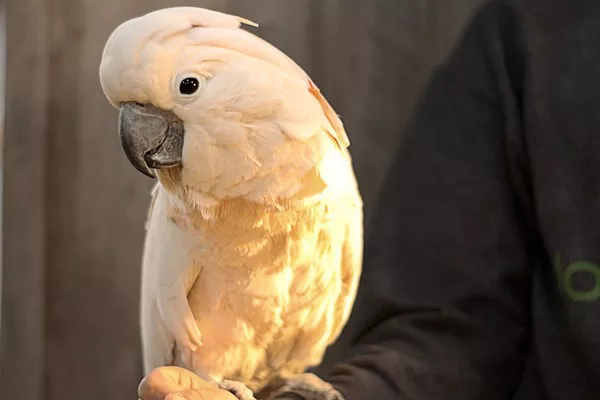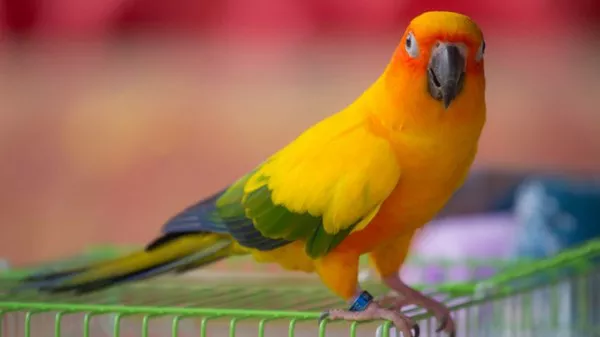Tortoiseshell cats, affectionately called “torties,” are beloved for their beautiful, unique fur patterns that resemble the mottled appearance of a tortoise’s shell. These cats are often a blend of warm, vibrant colors such as orange, black, and gold. But beyond their striking coats, many potential cat owners wonder about their temperament and personalities. Are tortie cats friendly? Are they good companions? In this article, we will explore the characteristics and behaviors that define tortoiseshell cats, focusing on whether or not they are friendly, their social nature, and what potential cat owners should know before bringing one into their home.
Understanding Tortie Cats
Tortoiseshell cats are not a specific breed but rather a color pattern found across various breeds of cats. The term “tortoiseshell” refers to the coat coloration, which combines a mix of black, orange, and gold, sometimes with a hint of white. This coloring occurs due to genetic factors and is most commonly seen in female cats. Male torties are extremely rare, accounting for only about 1 in 3,000 tortoiseshell cats.
While the tortoiseshell pattern is genetically determined, it is essential to note that each tortie cat is an individual with its unique personality. However, there has been an ongoing debate about whether tortie cats exhibit specific personality traits that set them apart from other cats. This leads us to the central question: Are tortie cats friendly?
The Personality of Tortie Cats
To understand whether tortie cats are friendly, it is important to first look at the general personality traits that are often associated with them. While it is crucial to remember that every cat is an individual, there are some commonly observed characteristics among tortoiseshell cats.
1. Independent and Strong-Willed
Many tortie cats are known for being independent and strong-willed. These cats often have a “no-nonsense” attitude and are not easily pushed around. This independence is likely a result of their genetics and their personalities as individuals. They may enjoy spending time alone and are often seen as self-sufficient cats that don’t require constant attention.
However, their independent nature doesn’t mean they are unfriendly or antisocial. They just tend to be more selective about when and how they interact with their human companions. For example, a tortie may seek attention when it wants affection but will also happily retreat to a quiet spot when it needs some personal space.
2. Affectionate on Their Own Terms
Contrary to the stereotype that tortie cats are aloof or standoffish, many torties can be very affectionate. They may not always show their love in the same way as some other breeds, but they often develop strong bonds with their owners. Tortie cats are known to be particularly loyal and may even follow their humans around the house, seeking affection or simply wanting to be close.
However, torties are often more likely to show affection on their own terms. They may initiate cuddling or playtime when they feel comfortable, but they are also known to enjoy their personal space. They may not always be the lap cat that craves constant snuggling, but they will show their love through gentle purring, head-butting, or following their human around.
3. Playful and Energetic
Tortie cats are also known for their playful and energetic nature. These cats are often curious and enjoy engaging in activities that challenge their intellect. Torties tend to enjoy interactive toys, games of chase, and exploring their environment. Their playful demeanor can be a sign of their intelligence and confidence.
If you have a tortie cat, be prepared to engage in regular playtime to keep her entertained. This is a cat that loves to explore, investigate, and satisfy her curiosity. The playful energy of a tortie can bring a sense of liveliness to a home, and their enthusiasm is often contagious.
4. Spunky and Feisty
One of the most well-known personality traits of tortie cats is their feisty nature. Torties are often described as “spunky” or “sassy” because they tend to be bold and confident in their actions. They may have a playful attitude that borders on mischievous, and they can sometimes be a bit unpredictable. For example, a tortie might engage in a game of fetch one moment and then suddenly decide she no longer wants to play, leaving her owner puzzled.
This feisty nature doesn’t mean that tortie cats are aggressive, but they can be a bit more temperamental at times. They may react strongly to changes in their environment, loud noises, or unfamiliar people. Torties are known to have strong personalities, which means they can be both loving and playful, but also a bit headstrong when it comes to their interactions.
5. Social or Reserved?
Tortoiseshell cats are often considered to be a bit more reserved than other cats, especially when it comes to meeting new people or adjusting to new environments. However, they are not necessarily unfriendly. Tortie cats may take a little time to warm up to strangers and can be cautious when entering unfamiliar situations.
If you’re considering adopting a tortie, be prepared for a slow introduction period. They may need time to adjust to their new home and will likely need space to explore at their own pace. However, once they feel comfortable, tortie cats can become affectionate and loyal companions, although they might still retain their independent streak.
6. Loyal to Their Owners
Despite their independent tendencies, tortie cats are known to be very loyal to their human companions. They tend to form strong bonds with the people they trust and can be very affectionate once they have established that bond. Torties may even seek out their owners for comfort and companionship during times of stress or anxiety.
Their loyalty often manifests as an interest in following their humans around the house or seeking out attention when needed. Torties may also become very attached to their owners and may show signs of distress if their humans are absent for extended periods. This attachment is one of the reasons tortie cats are considered to be such loving companions.
7. Tolerant of Other Pets
The tolerance of other pets in the household can vary depending on the individual tortie cat. Some torties get along well with other cats or dogs, while others may be more territorial and prefer to be the only pet in the household. If you are planning to introduce a tortie cat into a home with other pets, it’s essential to do so gradually and give the tortie time to adjust.
Tortoiseshell cats are generally not as social with other animals as some other breeds, but they can form strong relationships with other pets if given the right amount of time and space. However, it is crucial to respect their boundaries and allow them to take the lead when it comes to socializing.
Are Tortie Cats Aggressive?
Aggression is often a concern for potential cat owners, especially when adopting a cat with a strong personality like a tortie. While tortie cats are known for their feisty and independent nature, they are not inherently aggressive. They are more likely to exhibit behaviors such as playfulness or moodiness rather than outright aggression.
However, torties can become agitated if they feel threatened or uncomfortable. For example, they may hiss or swat if they are startled, or if they feel that their personal space is being invaded. This reaction is not necessarily a sign of aggression, but rather an expression of their desire to maintain control over their environment.
If a tortie feels that her boundaries are being respected, she is unlikely to display aggressive behaviors. It is essential to approach a tortie cat with patience and respect and to avoid forcing interactions that she may not be ready for. By allowing her to set the pace of your relationship, you are more likely to develop a positive and friendly bond.
How to Care for a Tortie Cat
Tortoiseshell cats have similar care needs to other domestic cats. However, their strong personalities and occasional feisty nature mean that they may require a bit more attention when it comes to their socialization and environment. Here are some tips for providing the best care for a tortie cat:
Provide plenty of enrichment: Tortie cats are intelligent and curious, so it’s essential to provide them with toys, puzzles, and activities that stimulate their minds. Interactive play is key to keeping them happy and healthy.
Respect their boundaries: Tortie cats appreciate their personal space, so it’s important to respect their need for alone time. If they are not in the mood for cuddling, it’s best to let them be.
Be patient with new introductions: If you have other pets or visitors, introduce them to your tortie cat gradually. Allow her to explore at her own pace, and don’t force interactions.
Provide a safe and calm environment: Tortie cats tend to be more sensitive to changes in their environment, so try to keep their space as stable and predictable as possible. This will help reduce stress and anxiety.
Monitor their health: Like all cats, torties need regular veterinary care to ensure they stay healthy. Be sure to schedule check-ups and vaccinations as needed.
Conclusion
In summary, tortie cats can indeed be friendly, but they tend to be independent, strong-willed, and sometimes a bit feisty. Their friendly behavior often depends on the individual cat and her comfort level with her environment and human companions. While torties may not always be the lap cats that crave constant attention, they are often loyal, affectionate, and playful in their own unique way.
Tortie cats can make wonderful companions for owners who appreciate their independent and strong personalities. By understanding their needs and respecting their boundaries, you can form a close bond with a tortie cat that is both loving and rewarding. If you’re looking for a cat that is both beautiful and full of personality, a tortie may be the perfect match for you.
Related Topics:























